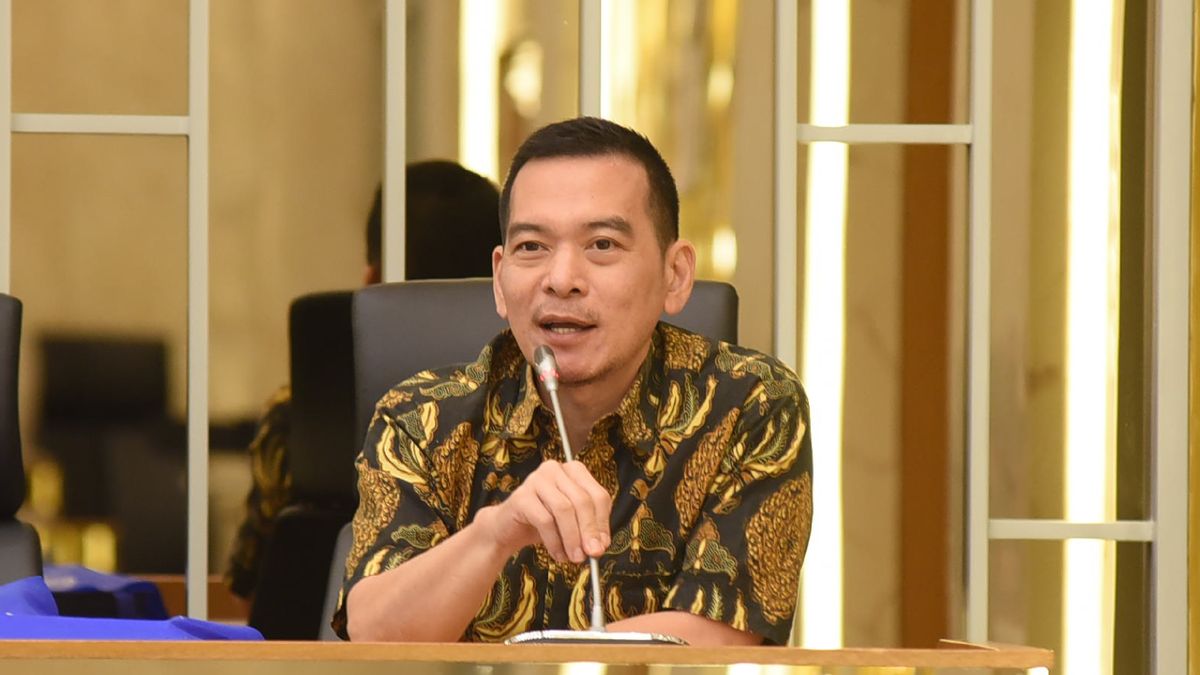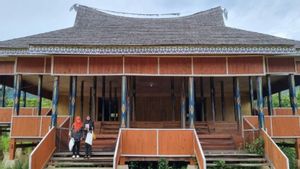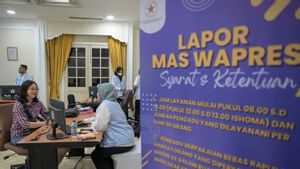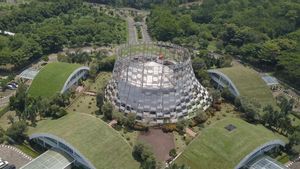JAKARTA - Member of Commission IV DPR RI Daniel Johan highlighted the damage to the Kabaena Island ecosystem in Bombana Regency due to illegal nickel mining in Southeast Sulawesi. Daniel asked the Government to take responsibility by immediately tightening the supervision of mining carried out on the island of tropical paradise.
"The government must take responsibility by tightening supervision of mining company operations, ensuring these companies comply with applicable environmental standards," said Daniel Johan, Wednesday, December 4.
Since the Decree of the Minister of Forestry Number SK.465/Menhut-II/2011 which changed the status of the forest on Kabaena Island from protected forest to production forest, it has made mining companies mine indiscriminately.
It is noted that 40% of mining business permits issued on Kabaena Island have been operating, while the rest will follow. As a result of illegal miners, many ecosystems were damaged, ranging from river water to brown to skin diseases experienced by local residents.
Not to mention the many illegal mining activities that are not responsible for environmental damage on Kabaena Island. Because there is no serious effort from the company to repair environmental damage and provide compensation to the affected communities.
SEE ALSO:
Daniel questioned the government's responsibility regarding this matter, especially since social problems also arose due to the rise of mining activities.
"Where is the government's presence if the situation is like this? Don't for the sake of seeking profit and then preserving nature and the welfare of the people is sacrificed!" he said.
Data shows that from 2001 to 2022, 3,374 hectares of forest, including 24 hectares of protected forests on Kabaena Island, have been demolished by corporations. There is even one company that makes the largest contribution to natural damage by deforestation covering an area of 641 hectares.
Due to the onslaught of mining, Kabaena Island, which should be a tourist destination because of the beauty of the hills, forests, and the blue sea, is now in a very worrying condition. The marine blue Panorama on Kabaena Island became muddy brown and had various bad impacts on the environment and the lives of the local community.
More than a decade ago, seawater in Baliara Village, Kabaena, turned brown. Mining activities on the hill are suspected of removing water catchment areas, so that when it rains heavily, mud is carried into the sea. The mud stop is difficult to lift and causes the sea to continue to be polluted.
The extent of sea water not only disrupts the ecosystem but also causes itching among residents who often come into contact with the water. The majority of the population who are fishermen and seaweed farmers are currently increasingly difficult to cultivate grass because the sea is polluted.
The nickel mining activity in Kabaena has significantly destroyed the local ecosystem. The forests that used to support people's lives and habitat for wildlife have now turned into barren land, "explained Daniel.
Not to mention the damage to clean water sources worsening the environmental conditions and economic life of residents. The government should not ignore this problem," continued the legislator from the West Kalimantan I electoral district.
There is also a sad story behind the cloudy sea water on Kabaena Island where in 2021 a toddler child falls. As a result of the cloudy water, the search process was hampered and the child's life could not be saved.
"This is very sad. Disaster is unavoidable, but the rescue process can still be carried out optimally if it is not hampered by cloudy water conditions," said Daniel.
Daniel then highlighted the problem of laboratory testing of water samples in various locations in Kabaena. The results show that nickel content reaches 3 mg/liter, 69 times the 0.05 mg/liter threshold set for marine biota.
According to local residents, mining activities in Kabaena not only involve land exploitation, but also illegal practices. Because it has been proven that there are large companies that carry out illegal mining in protected forest areas.
Daniel asked for firmness from the Government, especially law enforcement and related ministries/agencies such as the Ministry of Maritime Affairs, the Ministry of Forestry, and the Ministry of Environment.
Strict sanctions must be given to companies that are proven to have committed violations. Don't let our society and nature be harmed even more just for the benefit of a handful of groups," said the man who also served in the Legislation Body (Baleg) of the DPR.
Even though the company operates with official permits, according to Daniel, mining practices in protected areas are also not allowed. Moreover, it destroys nature and the environment, and causes people to bear social, economic, and health burdens.
Once again I ask that the central and regional governments should not turn a blind eye. Because the lack of supervision from the Government is exacerbating this situation," said Daniel.
The member of the Commission in the DPR who has a scope of forestry and marine sectors also asked the Government to listen to public complaints. Daniel said that although Kabaena Island is far from the center of government, it does not mean that the Government ignores the local community.
"Many residents also complain that companies do not make a meaningful contribution to the welfare of the surrounding community, both in the form of corporate social responsibility (CSR) and compensation for the damage they experience. The government should not be silent," he explained.
Daniel also reminded that due to the damaged ecosystem, the catch of fishermen has drastically decreased and affected the economy of people who depend on the marine sector. He reminded the Government's commitment to developing countries from the regions.
"Don't let the people suffer from government policies that only benefit entrepreneurs. The interests of the people remain the first thing to think about before issuing policies," said Daniel.
The English, Chinese, Japanese, Arabic, and French versions are automatically generated by the AI. So there may still be inaccuracies in translating, please always see Indonesian as our main language. (system supported by DigitalSiber.id)

















